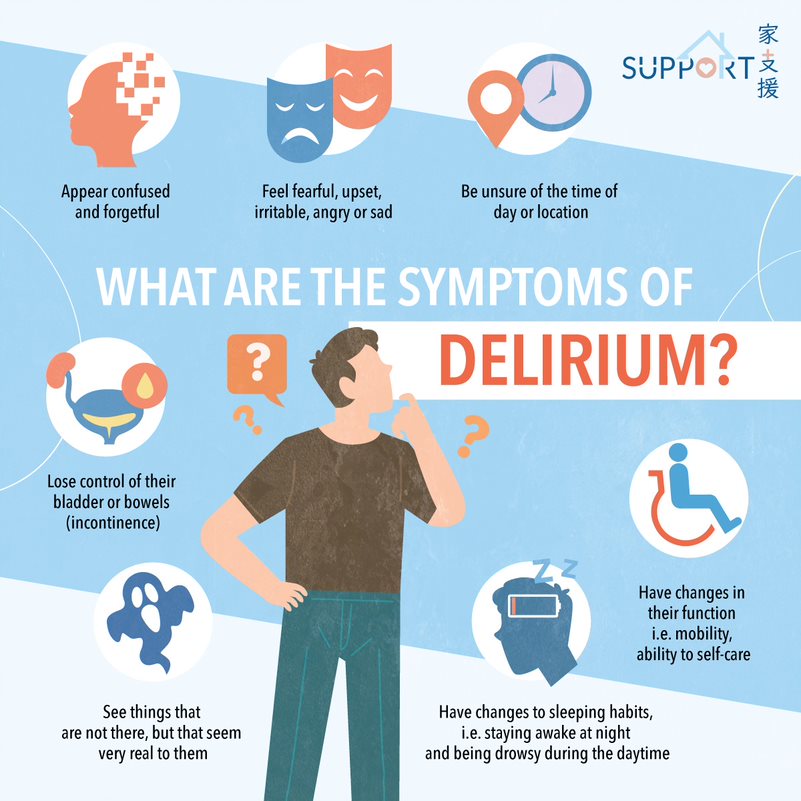Treatment depends on the cause of the delirium, including:
- antibiotics for infection
- intravenous fluid for dehydration or electrolyte disturbance
- changing medicines or stopping the use of medicines that cause delirium
The healthcare team will create a calm environment for patients with delirium by:
- ensuring good lighting during the day and darkness of the room night
- reducing noise in the room
- providing a clock or calendar in the room
- limiting the number of visitors
Patients may have delirium at their end of life. If the patient with delirium is very agitated, or the condition does not improve with other treatments, the doctor may recommend using sedation. Sedation is a type of medication that puts a person into deep sleep. The goal of sedation is to make the person feel comfortable.



